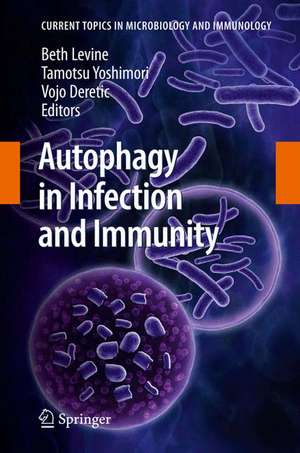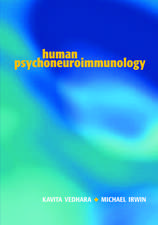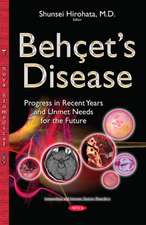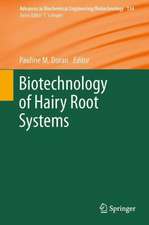Autophagy in Infection and Immunity: Current Topics in Microbiology and Immunology, cartea 335
Editat de Beth Levine, Tamotsu Yoshimori, Vojo Dereticen Limba Engleză Hardback – 21 sep 2009
| Toate formatele și edițiile | Preț | Express |
|---|---|---|
| Paperback (1) | 1412.99 lei 6-8 săpt. | |
| Springer Berlin, Heidelberg – 14 mar 2012 | 1412.99 lei 6-8 săpt. | |
| Hardback (1) | 1417.54 lei 6-8 săpt. | |
| Springer Berlin, Heidelberg – 21 sep 2009 | 1417.54 lei 6-8 săpt. |
Din seria Current Topics in Microbiology and Immunology
- 18%
 Preț: 962.03 lei
Preț: 962.03 lei - 5%
 Preț: 1123.13 lei
Preț: 1123.13 lei - 5%
 Preț: 1085.95 lei
Preț: 1085.95 lei -
 Preț: 499.77 lei
Preț: 499.77 lei - 5%
 Preț: 967.81 lei
Preț: 967.81 lei - 18%
 Preț: 1118.62 lei
Preț: 1118.62 lei - 5%
 Preț: 717.00 lei
Preț: 717.00 lei - 5%
 Preț: 712.97 lei
Preț: 712.97 lei - 5%
 Preț: 709.51 lei
Preț: 709.51 lei - 5%
 Preț: 709.51 lei
Preț: 709.51 lei - 5%
 Preț: 721.19 lei
Preț: 721.19 lei - 5%
 Preț: 359.78 lei
Preț: 359.78 lei - 5%
 Preț: 711.88 lei
Preț: 711.88 lei - 5%
 Preț: 774.81 lei
Preț: 774.81 lei - 15%
 Preț: 640.06 lei
Preț: 640.06 lei - 5%
 Preț: 717.00 lei
Preț: 717.00 lei - 5%
 Preț: 360.34 lei
Preț: 360.34 lei - 5%
 Preț: 707.69 lei
Preț: 707.69 lei - 5%
 Preț: 717.56 lei
Preț: 717.56 lei - 5%
 Preț: 716.28 lei
Preț: 716.28 lei - 5%
 Preț: 717.20 lei
Preț: 717.20 lei - 5%
 Preț: 711.32 lei
Preț: 711.32 lei - 5%
 Preț: 711.88 lei
Preț: 711.88 lei - 5%
 Preț: 718.29 lei
Preț: 718.29 lei - 5%
 Preț: 709.51 lei
Preț: 709.51 lei - 5%
 Preț: 369.84 lei
Preț: 369.84 lei - 5%
 Preț: 712.25 lei
Preț: 712.25 lei - 5%
 Preț: 716.45 lei
Preț: 716.45 lei - 5%
 Preț: 706.60 lei
Preț: 706.60 lei - 5%
 Preț: 711.52 lei
Preț: 711.52 lei - 5%
 Preț: 713.54 lei
Preț: 713.54 lei - 5%
 Preț: 720.47 lei
Preț: 720.47 lei - 5%
 Preț: 725.42 lei
Preț: 725.42 lei - 5%
 Preț: 708.06 lei
Preț: 708.06 lei - 5%
 Preț: 713.70 lei
Preț: 713.70 lei - 5%
 Preț: 705.83 lei
Preț: 705.83 lei - 5%
 Preț: 710.96 lei
Preț: 710.96 lei - 5%
 Preț: 723.93 lei
Preț: 723.93 lei - 5%
 Preț: 707.69 lei
Preț: 707.69 lei - 5%
 Preț: 715.35 lei
Preț: 715.35 lei - 5%
 Preț: 709.87 lei
Preț: 709.87 lei - 5%
 Preț: 359.05 lei
Preț: 359.05 lei - 5%
 Preț: 374.20 lei
Preț: 374.20 lei - 15%
 Preț: 635.31 lei
Preț: 635.31 lei - 5%
 Preț: 707.86 lei
Preț: 707.86 lei - 5%
 Preț: 721.96 lei
Preț: 721.96 lei - 15%
 Preț: 632.88 lei
Preț: 632.88 lei - 15%
 Preț: 632.05 lei
Preț: 632.05 lei - 15%
 Preț: 642.83 lei
Preț: 642.83 lei
Preț: 1417.54 lei
Preț vechi: 1492.14 lei
-5% Nou
Puncte Express: 2126
Preț estimativ în valută:
271.24€ • 295.56$ • 228.56£
271.24€ • 295.56$ • 228.56£
Carte tipărită la comandă
Livrare economică 23 aprilie-07 mai
Preluare comenzi: 021 569.72.76
Specificații
ISBN-13: 9783642003011
ISBN-10: 364200301X
Pagini: 375
Ilustrații: XIV, 339 p. 50 illus., 35 illus. in color.
Dimensiuni: 155 x 235 x 26 mm
Greutate: 0.61 kg
Ediția:2009
Editura: Springer Berlin, Heidelberg
Colecția Springer
Seria Current Topics in Microbiology and Immunology
Locul publicării:Berlin, Heidelberg, Germany
ISBN-10: 364200301X
Pagini: 375
Ilustrații: XIV, 339 p. 50 illus., 35 illus. in color.
Dimensiuni: 155 x 235 x 26 mm
Greutate: 0.61 kg
Ediția:2009
Editura: Springer Berlin, Heidelberg
Colecția Springer
Seria Current Topics in Microbiology and Immunology
Locul publicării:Berlin, Heidelberg, Germany
Public țintă
ResearchCuprins
An Overview of the Molecular Mechanism of Autophagy.- Macroautophagy Signaling and Regulation.- Physiological Functions of Autophagy.- Autophagy and Lymphocyte Homeostasis.- Autophagy and Innate Recognition Systems.- Autophagy in MHC Class II Presentation of Endogenous Antigens.- Role of Autophagy and Autophagy Genes in Inflammatory Bowel Disease.- Autophagy in Immunity Against Mycobacterium tuberculosis: a Model System to Dissect Immunological Roles of Autophagy.- Autophagy in Immunity Against Intracellular Bacteria.- Group A Streptococcus: A Loser in the Battle with Autophagy.- Autophagy Subversion by Bacteria.- Autophagy in Immunity Against Toxoplasma gondii.- Autophagy in Mammalian Antiviral Immunity.- Something Old, Something New: Plant Innate Immunity and Autophagy.- Autophagy in HIV-Induced T Cell Death.- Subversion of the Cellular Autophagy Pathway by Viruses.
Textul de pe ultima copertă
Autophagy is a fundamental biological process that enables cells to autodigest their own cytosol during starvation and other forms of stress. It has a growing spectrum of acknowledged roles in immunity, aging, development, neurodegeneration, and cancer biology. An immunological role of autophagy was first recognized with the discovery of autophagy’s ability to sanitize the cellular interior by killing intracellular microbes. Since then, the repertoire of autophagy’s roles in immunity has been vastly expanded to include a diverse but interconnected portfolio of regulatory and effector functions. Autophagy is an effector of Th1/Th2 polarization; it fuels MHC II presentation of cytosolic (self and microbial) antigens; it shapes central tolerance; it affects B and T cell homeostasis; it acts both as an effector and a regulator of Toll-like receptor and other innate immunity receptor signaling; and it may help ward off chronic inflammatory disease in humans. With such a multitude of innate and adaptive immunity functions, the study of autophagy in immunity is one of the most rapidly growing fields of contemporary immunological research. This book introduces the reader to the fundamentals of autophagy, guides a novice and the well-informed reader alike through different immunological aspects of autophagy as well as the countermeasures used by highly adapted pathogens to fight autophagy, and provides the expert with the latest, up-to-date information on the specifics of the leading edge of autophagy research in infection and immunity.
Caracteristici
Includes supplementary material: sn.pub/extras










